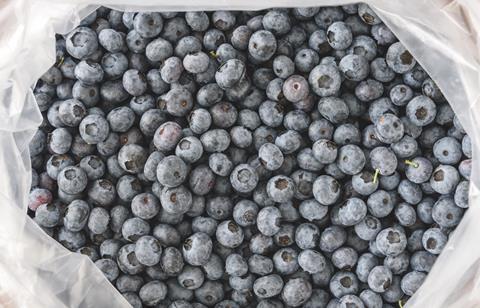Climate change has had a major impact on volumes, but the introduction of new varieties offers hope for the future of the industry
For Mexico’s soft fruit growers, 2023/24 was a challenging season across the board. Volumes and income dropped an estimated 15 per cent year-on-year as climate change drove drought conditions across the major production regions of Michoacán and Jalisco.

“The 2023/24 season was the most difficult we have experienced as an industry in the past 12 years,” says Miguel Angel Curiel, general manager of Driscoll’s Mexico. “At Driscoll’s, we started the season well with berry volumes meeting our expectations in autumn 2023. However, the winter was warm, which affected yields across all products with plants not flowering as expected, although we did see some recovery in volumes in the spring.”
“It’s been a time full of challenges and quite difficult in every respect,” agrees Carlos Madariaga, chief commercial officer at Berries Paradise. “Climate change has had an impact on volumes in the form of extreme heat and a lack of rain.”
A similar assessment is given by Alvaro Preciado, director of Jalisco-based berry grower-exporter collective Gold Fruit Farm, who says the changing climate is just one of several factors affecting production.
“The issue of the climate has impacted us because it has changed the production, making it more difficult,” he says. “We have also been affected by the [peso-dollar] exchange rate, which is lower than it was a year ago, and by the high costs of inputs and labour.”
However, there are some signs for optimism. Driscoll’s Mexico, according to Curiel, has converted 100 per cent of its production to new berry varieties over the past three years, with hopes high for recent introductions, including Mia raspberries and Arana blueberries. Mia, with its high productivity, offered a “solution” for Driscoll’s last season, although Curiel says its susceptibility to fungus makes its at times challenging to produce.
Madariaga also sees opportunities for a better future for berry companies that focus on optimisation and “outstanding genetics”. Unlike many of its contemporaries, Berries Paradise is already shipping to non-North American markets. Although 75 per cent of its volumes go to the US, Madariaga estimates that 25 per cent reaches other global markets.
Like many in the industry, exports to the US are currently the focus for close to 100 per cent of the volumes produced by Gold Fruit Farm’s 125 small and medium-sized growers. However, Preciado says there exists a strong interest in reaching the European market, which the company hopes to achieve over the coming seasons.
“It’s not something we have explored as yet because we barely satisfy North American demand with our volumes, but we think that with varieties like Daniela (raspberry) and Sweet Caroline (blackberry), as well as new blueberries such as Sekoya Pop, we will be able to compete,” he says.
This interview was taken from Fresh Focus North America, a new publication from Fruitnet, available now



